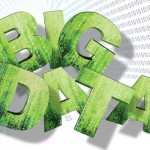| 21st Century Business Ideas |
by Peter A. Arthur-Smith, Leadership Solutions, Inc.®
“Just trying to get a single, easy-to-measure number…(as per Big Data)…doesn’t actually help us make the right choice. For this reason, the key question isn’t ‘What did I measure?’ but ‘What did I miss?’.” Article NY Times, May 2015, entitled: ‘How Not to Drown in Numbers,’ by Alex Peysakhovich (behavioral economist and data scientist at Facebook) and Seth Stephens-Davidowitz (economist and former data scientist at Google).
Big Data is driving us nuts. We’re spending $millions on it in the hope of finding a lot of quick and easy answers. Maybe we will. But it’s also possible that it may be a big pipe-dream.
Data scientists and economists, like the ones who authored the above quoted Times article, are at last beginning to question our stampede in this direction. They also went on to make another point: “If you’re trying to build a self-driving car or detect whether a picture has a cat on it, big data is amazing. But here’s a secret: If you’re trying to make important decisions about your health, wealth or happiness, big data is not enough.”
There’s a special “sauce” they also say is necessary to make big data work: consisting of surveys and the judgment of humans. They regard these latter two italicized components as old fashioned ingredients called small data.
Facebook author ‘AP’ above was obviously able to relate to his data experiences of monitoring member reactions to particular newsfeeds. Facebook can quickly determine whether the newsfeed was ‘liked, clicked, commented on or shared.’ But it cannot determine the answers to opinion questions like – among others – ‘What was your member experience like?’ or ‘How did it make you laugh?’
Such examples begin to show likely holes in the pursuit of big data. Consider some alternative, typical workplace examples: ‘How do my people actually feel about their work environment?’, “To what extent are they inspired by it?’, ‘What could make it even more inspirational?’ Big data cannot measure these soft, small data issues. This goes for customer opinions, too.
That’s why this writer always includes opportunities for verbal comments in staff satisfaction surveys. Such comments are vital for providing texture and insight to any survey data.
Managers are particularly drawn to big data because they are captivated by analysis, logic and rational reasoning. All of those are valid, although are not the only thing. Leaders, on the other hand, are more interested in people’s feelings, intuitive ideas, and soft expertise. Owing to our business history and conventional practices, we have more managers in our midst than leaders, hence the majority attraction toward big data. So, if we’re not careful, we’re in danger of becoming slaves to this latest craze.
What will it look like when we’ve become big data slaves? Well, we’ll definitely be slaves to numbers because big data relies on numbers. You’ll end up as a pure number and so will your colleagues; plus your family members, too. If you don’t have a number, you just won’t exist…just like prisoners or military personnel. Every object around you that you utilize will have a number, so you will refer to that object by its number instead of its name. All items on menus will have numbers, as well, as will so many other things that have names today.
If something doesn’t have a number associated with it, we won’t be able to make a decision related to it. Just look at store item bar codes and their associated numbers right now. It will become really boring to look at barcodes and numbers all day in our workplaces. Everything will become increasingly mundane, since our opinions won’t count unless they are related to numbers. Twitters, texts, emails, and other social media forms, are increasingly likely to be filled with acronyms or numbers. These formats will all fill our big data numbers craze. This writer apologizes for using prose in this article as opposed to a string of numbers.
What’s the alternative? Perhaps readers and executives will turn to small data before it’s too late. Maybe some elusive smart leaders among us will continue integrating small data into their decisions and steal a march on those big data folks. Such leaders will be far more accurate decision makers and better able to tune into their people’s passions. And so their ventures are likely to be more durable and dynamic and will literally fly past the stumbling big data entities.
So, if you view yourself as a leader, don’t feel diminished by the big data managers. As you can appreciate from the opening quote, there are increasing reservations out there. That’s likely to grow. You just keep plugging away in the small data zone, such as:
» Give your people a strong sense of role and enterprise purpose.
» Make them feel valued and well respected.
» Tune into their own sense of achievement; not your own.
» Encourage a feeling of camaraderie across the board.
» Show that you trust them and are willing to empower them.
» Give them every opportunity to master their particular role and tasks,
When making strategic and tactical decisions, look behind the numbers and find the small data by asking such questions such as:
»Why do people prefer to buy our products or services?
»What sort of packaging will attract buyers?
»What kind of new markets are out there for our products?
These are just some of the questions that big data cannot answer, since they are qualitative in nature rather than quantitative. Hence the limitations of big data versus small data. Use the former where you can, but don’t be mesmerized by it either.
Don’t forget: by better communicating with and engaging your people through small data activities, you’ll experience at least another 20-30% better overall performance than relying upon big data. Why is that? Because the positive environment you create will generate the goodwill for encouraging your people to produce more.
To learn more about small data, talk with:


